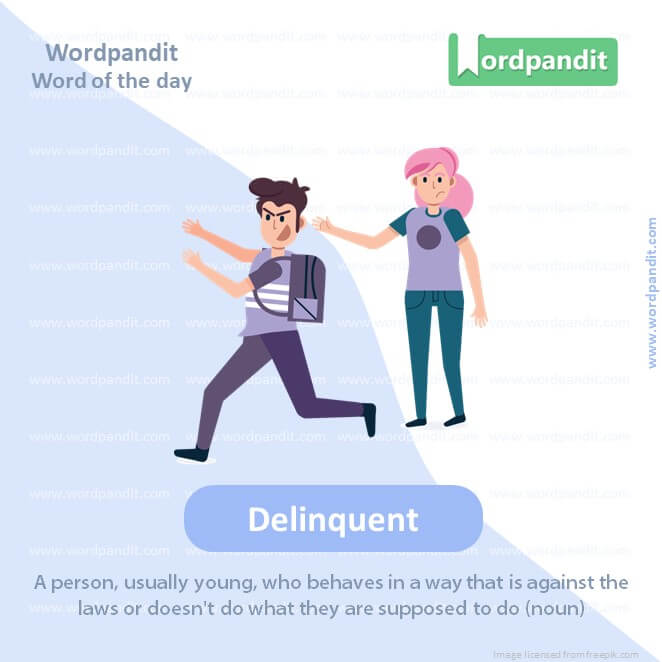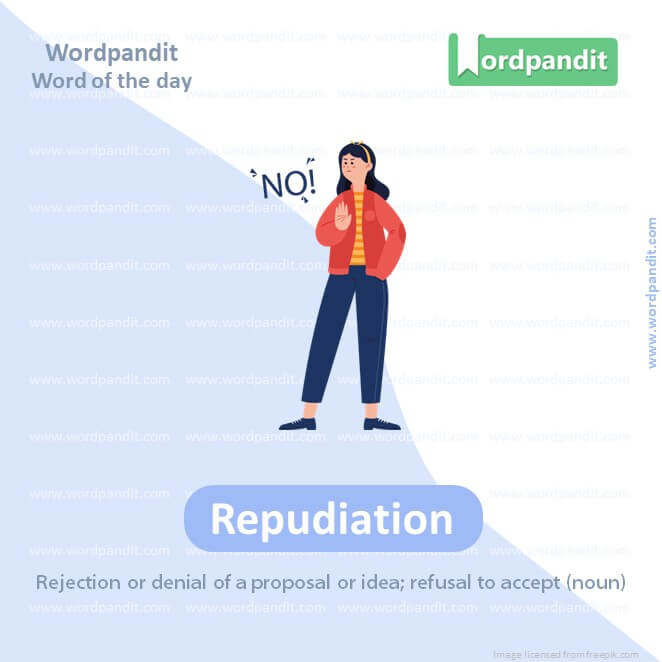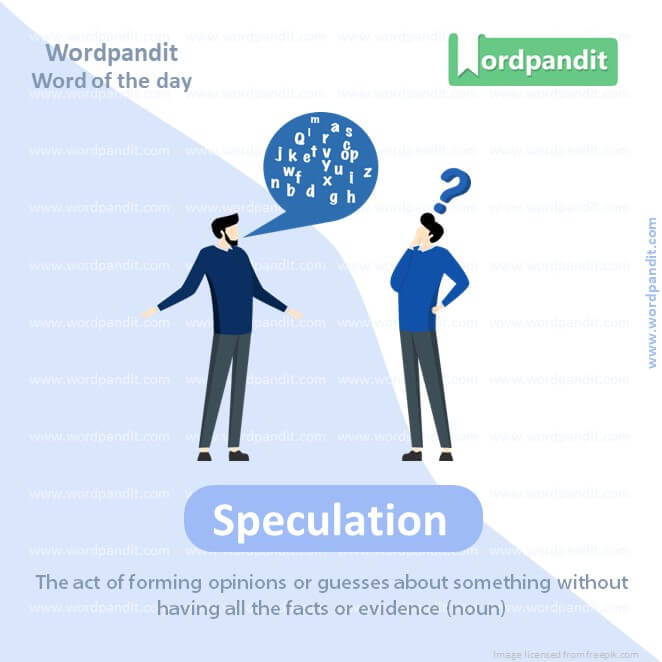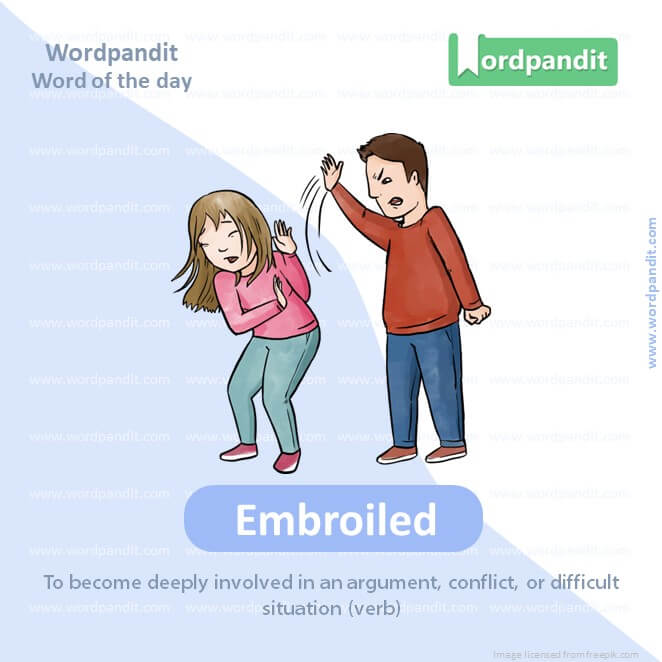Daily Vocabulary Words: List of Daily Used Words in Leading International Newspapers
Hi there. Welcome to this special section @ Wordpandit.
Our endeavour here is very simple: to highlight important daily vocabulary words, which you would come across in leading newspapers in the country. We have included the following newspapers in our selection:
• The New York Times
• The Washington Post
• Scientific American
• BBC
• The Guardian
• Psychology Today
• Wall Street Journal
• The Economist
We are putting in extensive work for developing your vocabulary. All you have got to do is be regular with this section and check out this post on a daily basis. This is your repository of words that are commonly used and essentially, we are posting a list of daily used words. Hence, this has significant practical application as it teaches you words that are used commonly in leading publications mentioned above.
Visit the website daily to learn words from leading international newspapers.

WORD-1: Delinquent
CONTEXT: There’s been widespread attention on Donald Trump’s asserting that he would refuse to defend NATO allies he considers “delinquent” and even saying he might encourage Russia to attack them.
SOURCE: New York Times
EXPLANATORY PARAGRAPH: Imagine someone who was supposed to do their homework but didn’t, or was supposed to follow rules, like being home on time, but didn’t listen. That person is not doing what they’re supposed to do, and we can say they’re being a bit like a “delinquent”. It means not doing your duties or breaking the rules.
MEANING: A person, usually young, who behaves in a way that is against the laws or doesn’t do what they are supposed to do (noun); failing to do what law or duty requires (adjective).
PRONUNCIATION: del-IN-kwint
SYNONYMS: Offender, lawbreaker, wrongdoer, rebel, miscreant, outlaw, negligent
USAGE EXAMPLES:
1. The delinquent was caught shoplifting at the mall.
2. After several delinquent actions, the teenager was sent to a correctional facility.
3. The librarian noticed delinquent fees on the borrowed books.
4. The school tried to help delinquent students improve their behavior.

WORD-2: Self-aggrandizing
CONTEXT: My point, rather, is that he often seems unable to tell the difference between self-aggrandizing fantasies and things that actually happened.
SOURCE: New York Times
EXPLANATORY PARAGRAPH: Imagine someone who talks a lot about how great they are, showing off and making themselves seem more important or better than they really are. That’s called being “self-aggrandizing”. It’s like bragging a lot to make people think you’re super special.
MEANING: Behaving or speaking in a way that makes oneself appear more important or grander than is the case (adjective).
PRONUNCIATION: self-ag-GRAN-dizing
SYNONYMS: Boastful, egotistic, self-promoting, arrogant, pompous, pretentious, vainglorious
USAGE EXAMPLES:
1. The self-aggrandizing speech made him seem more accomplished than he actually was.
2. Her self-aggrandizing tales often bored her friends.
3. The politician’s self-aggrandizing narrative was criticized by the media.
4. He shared self-aggrandizing posts on social media to impress his followers.

WORD-3: Repudiation
CONTEXT: Trump’s repudiation of NATO went down: He didn’t make a straightforward case, which would have been arguable, that we’re spending too much on defense while our allies are spending too little.
SOURCE: New York Times
EXPLANATORY PARAGRAPH: Imagine you promise to trade your apple for a friend’s sandwich, but then your friend says “no way, I’m not doing that!” and decides not to trade. That’s like “repudiation”. It means to say no or refuse something that was agreed upon or believed in.
MEANING: Rejection or denial of a proposal or idea; refusal to accept (noun).
PRONUNCIATION: re-PU-dee-a-shun
SYNONYMS: Rejection, denial, disavowal, refusal, disownment, negation, disapproval
USAGE EXAMPLES:
1. The company faced repudiation of its agreement by the other party.
2. His repudiation of the earlier statements caused confusion.
3. The repudiation of the contract led to a lawsuit.
4. She expressed her repudiation of the traditional beliefs held by her family.
WORD-4: Corroborating
CONTEXT: There’s almost never any corroborating evidence, and it’s a good bet that very few of these stories are accounts of actual conversations.
SOURCE: New York Times
EXPLANATORY PARAGRAPH: Imagine you’re telling a story about a unicorn you saw, and your friend says, “Yes, I saw it too!” Your friend is helping make your story stronger and more believable. That’s what “corroborating” is about. It means giving more information or evidence to help prove something is true.
MEANING: Providing information or evidence that supports or confirms something else (verb).
PRONUNCIATION: kuh-ROB-uh-ray-ting
SYNONYMS: Confirming, verifying, substantiating, validating, supporting, authenticating, endorsing
USAGE EXAMPLES:
1. The witness was corroborating the story given by the police.
2. Additional research is needed for corroborating the initial findings.
3. His story was corroborated by video evidence.
4. The scientist spent years corroborating her theory with experiments.
WORD-5: Arraignment
CONTEXT: there’s no way that police officers and court employees were “crying” and apologizing to Trump at his Manhattan court arraignment last spring.
SOURCE: New York Times
EXPLANATORY PARAGRAPH: Imagine if someone breaks a rule, and they have to go in front of a group of people to hear what they did wrong and how they will figure out if they really did it. That’s like an “arraignment”. It’s when someone has to go to court, and they are told what they are accused of doing wrong.
MEANING: The act of bringing someone to court to answer a charge of a crime; the formal reading of a criminal charging document in the presence of the defendant to inform them of the charges against them (noun).
PRONUNCIATION: uh-RAYN-ment
SYNONYMS: Indictment, prosecution, charging, accusation, legal proceeding, summoning, hearing
USAGE EXAMPLES:
1. The arraignment of the accused took place in a crowded courtroom.
2. During the arraignment, the charges were read aloud to the defendant.
3. She pleaded not guilty at her arraignment.
4. The arraignment was scheduled for the following Monday.

WORD-6: Speculation
CONTEXT: I haven’t seen many suggestions that he’s made bad decisions because his judgment is impaired; it’s almost all speculation about the future.
SOURCE: New York Times
EXPLANATORY PARAGRAPH: Imagine you’re guessing what you’ll get for your birthday. You’re not sure, but you’re making a really good guess based on what you hope or think might happen. That’s called “speculation”. It’s when you guess about something, especially without all the facts.
MEANING: The act of forming opinions or guesses about something without having all the facts or evidence (noun).
PRONUNCIATION: spek-yuh-LAY-shun
SYNONYMS: Guessing, theorizing, conjecture, hypothesizing, surmising, assumption, presumption
USAGE EXAMPLES:
1. There was much speculation about the reasons for his sudden resignation.
2. Speculation in the stock market can be risky.
3. The book is full of speculation about the future of technology.
4. Her disappearance led to widespread speculation in the media.
WORD-7: Piddled
CONTEXT: She’s piddled around hosting a conservative podcast.
SOURCE: New York Times
EXPLANATORY PARAGRAPH: Imagine you’re just playing with your toys, not really doing anything important, just kind of wasting time or doing little things that don’t matter much. That’s like “piddling”. It means you’re spending your time in a way that’s not very important or serious.
MEANING: To spend time in a trivial or ineffective way; to waste time (verb).
PRONUNCIATION: PID-dld
SYNONYMS: Dawdled, trifled, loitered, pottered, fiddled, tinkered, dallied
USAGE EXAMPLES:
1. He piddled away the afternoon playing video games.
2. Instead of working, she piddled around in the garden.
3. They piddled the day away with no real accomplishments.
4. I’ve been piddling with this puzzle for hours.
WORD-8: Shattering
CONTEXT: Mr. Trump isn’t shattering a norm so much as taking things to a disquieting extreme.
SOURCE: New York Times
EXPLANATORY PARAGRAPH: Imagine dropping a glass on the floor, and it breaks into a million little pieces. That’s “shattering”. It means breaking something very hard so it splits into many pieces, or feeling very upset or shocked by something.
MEANING: Breaking into many pieces with a loud noise; deeply upsetting or shocking (verb, adjective).
PRONUNCIATION: SHAT-er-ing
SYNONYMS: Smashing, breaking, crashing, fracturing, splintering, demolishing, devastating
USAGE EXAMPLES:
1. The news of the accident was shattering to her family.
2. The vase fell and shattered on the tile floor.
3. His dreams of becoming an athlete were shattered by the injury.
4. The shattering impact of the explosion could be heard miles away.

WORD-9: Embroiled
CONTEXT: This could be especially timely considering the legal mess in which the family company has been embroiled of late.
SOURCE: New York Times
EXPLANATORY PARAGRAPH: Imagine you and your friends are playing, and suddenly, there’s a big argument, and everyone starts arguing about who’s right. You’re all caught up in a big mess now. That’s being “embroiled”. It means getting involved in a difficult situation or argument that is hard to escape from.
MEANING: To become deeply involved in an argument, conflict, or difficult situation (verb).
PRONUNCIATION: em-BROIL-d
SYNONYMS: Entangled, involved, mired, ensnared, implicated, caught up, enmeshed
USAGE EXAMPLES:
1. He became embroiled in a legal battle that lasted for years.
2. The company was embroiled in a scandal over its business practices.
3. She wanted to avoid getting embroiled in their disagreements.
4. The nation found itself embroiled in an unwinnable conflict.
WORD-10: Tantalizing
CONTEXT: “The Apprentice,” the Supreme Court could be an even more tantalizing option.
SOURCE: New York Times
EXPLANATORY PARAGRAPH: Imagine seeing your favorite cake on the table, but you’re told you can’t eat it until later. It looks so delicious, and you really want it, but you just can’t have it yet. That’s “tantalizing”. It means something is very tempting or makes you want it a lot, but it’s just out of reach.
MEANING: Tempting or teasing with the promise of something unobtainable (adjective).
PRONUNCIATION: TAN-tuh-lize-ing
SYNONYMS: Tempting, enticing, alluring, inviting, seductive, appealing, provocative
USAGE EXAMPLES:
1. The smell of freshly baked cookies was tantalizing.
2. She gave him a tantalizing glimpse of her new dress.
3. The trailer offered a tantalizing preview of the movie.
4. The prospect of discovering something new was tantalizing to the researchers.
Vocabulary Meaning and Examples
In the fascinating world of language learning, a method particularly impactful is learning ‘vocabulary meaning and examples’. Harnessing this dual approach of understanding words through definitions and relevant examples yields a sound vocabulary grasp. Let’s explore how we can effectively learn vocabulary using ‘meaning and examples’.
Foremost, recognizing ‘meaning and examples’ involves more than just a surface glance at the definition. It requires an engaged interaction with the word, placing it within a proper context. This enriches comprehension and facilitates an innate understanding of the word’s applications.
The process of learning ‘meaning and examples’ is made highly effective through varied resources. Reading literature, online articles, and language learning platforms offer numerous examples enriching the meanings. By frequently encountering a word in various contexts, the understanding of the ‘meaning and examples’ deepens, imprinting the word into long-term memory.
When learning ‘meaning and examples’, creating personal sentences is recommended. Develop your own examples using the given word. This personal connection between learned vocabulary and your everyday life context strengthens both familiarity and recall.
Moreover, taking notes while studying ‘meaning and examples’ goes a long way in mastering vocabulary. Jotting down the definition and a couple of examples for reference leads to better recall during revisions.
Finally, teach to learn. A tried-and-true method to solidify ‘meaning and examples’ is by explaining the word to someone else. This exercise forces you to articulate the word’s usage and understanding clearly, embedding it further in your memory.
In conclusion, the journey to learn ‘vocabulary meaning and examples’ is a rewarding process that involves a multifaceted approach. As you dive into the rich experience of understanding words through ‘meaning and examples’, you uncover the nuance and depth of language, enabling you to master it in its true sense.











